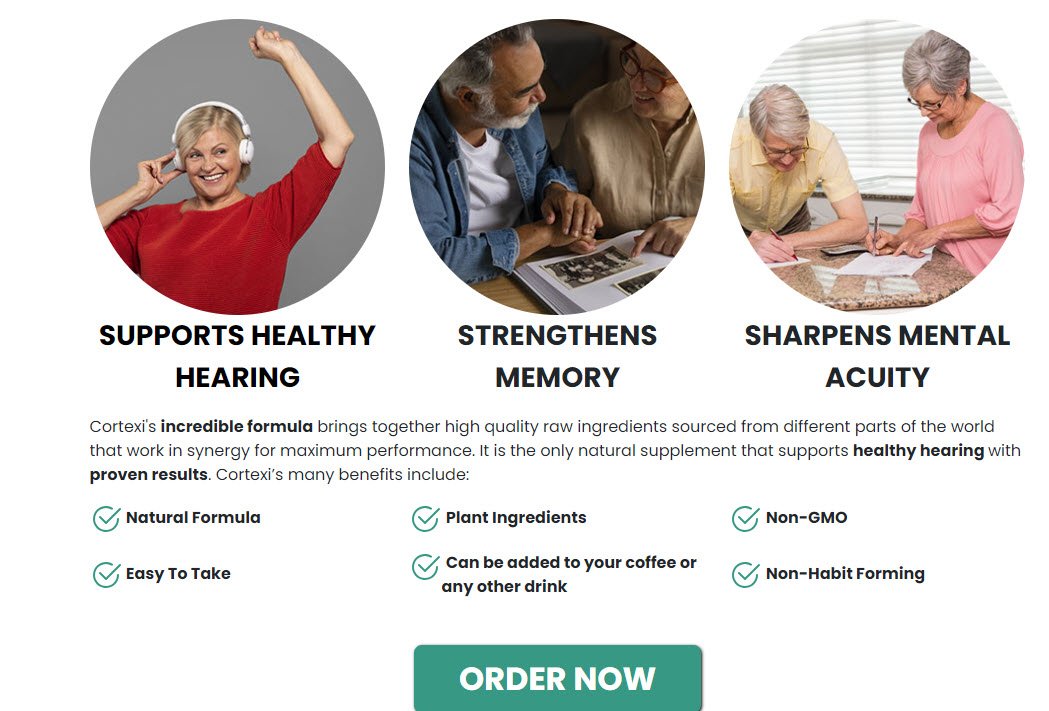In the fast-paced and demanding field of healthcare, it is crucial for healthcare workers to develop effective stress management techniques in order to maintain their well-being and provide the best possible care for others. With the ever-increasing demands, long working hours, and high-pressure situations, stress can often build up and impact both physical and mental health. Therefore, it is essential for healthcare workers to prioritize their own self-care and learn techniques that can help them manage stress effectively. This article explores some practical strategies and tips to develop effective stress management techniques specifically tailored for healthcare workers.

Developing Resilience
Working in the healthcare field can be incredibly rewarding, but it can also be incredibly demanding. As a healthcare worker, it’s important to develop resilience in order to effectively manage stress and maintain your overall well-being. One of the first steps in developing resilience is identifying your personal stress triggers. Everyone’s stressors are different, so take some time to reflect on what situations or circumstances tend to cause you the most stress. Whether it’s long hours, work overload, difficult patients, or challenging colleagues, recognizing these triggers is the first step towards managing them effectively.
Another key aspect of developing resilience is building a support system. It’s important to have people in your life who can provide emotional support, lend a listening ear, and offer guidance when needed. This support system can include friends, family members, colleagues, or even professional counselors or therapists. Having a network of individuals who understand and empathize with the unique challenges of healthcare work can make a world of difference in your ability to cope with stress.
Practicing self-care is also crucial in developing resilience. Healthcare workers often spend so much time caring for others that they neglect their own well-being. However, prioritizing self-care is essential for maintaining your physical, mental, and emotional health. Make sure to prioritize activities that bring you joy and relaxation, such as hobbies, exercise, spending time with loved ones, or engaging in activities that help you unwind and recharge.
Establishing a healthy work-life balance is another important aspect of developing resilience. It can be easy to let work consume your life, especially when you’re passionate about what you do. However, it’s important to set boundaries and make time for activities outside of work that bring you happiness and fulfillment. Whether it’s spending time with family and friends, pursuing hobbies, or simply taking time for yourself, finding a balance between work and personal life is key to preventing burnout and maintaining overall well-being.
Lastly, developing a positive mindset is crucial in building resilience and effectively managing stress. Cultivating a positive outlook can help you navigate through the challenges and setbacks that may come your way. Practice gratitude, focus on the positive aspects of your work, and try to reframe negative thoughts into more positive and empowering ones. Remember, resilience is not about avoiding stress altogether, but rather about developing the skills and mindset to bounce back and thrive in the face of adversity.
Implementing Stress Reduction Techniques
Engaging in regular physical activity is an excellent way to reduce stress and promote overall well-being. Exercise releases endorphins, the feel-good hormones, which can help boost your mood, reduce anxiety, and improve your overall mental health. Find an activity that you enjoy, whether it’s going for a run, practicing yoga, swimming, or playing a sport, and incorporate it into your routine regularly. Aim for at least 30 minutes of moderate to vigorous exercise most days of the week.
In addition to exercise, utilizing relaxation techniques can also be incredibly helpful in managing stress. Techniques such as deep breathing exercises, progressive muscle relaxation, and guided imagery can help calm your mind and relax your body. These techniques can be done anywhere and at any time, making them readily accessible tools when you’re feeling overwhelmed.
Mindfulness and meditation are practices that have gained significant popularity in recent years, and for good reason. These practices involve intentionally bringing your attention to the present moment and cultivating a non-judgmental awareness of your thoughts, feelings, and sensations. Regular mindfulness and meditation practice can help reduce stress, improve focus and concentration, and increase overall well-being. Consider incorporating these practices into your daily routine, even if it’s just for a few minutes a day.
Practicing deep breathing exercises is another effective stress reduction technique. When we’re stressed, our breathing tends to become shallow and fast. By consciously slowing down and deepening our breaths, we can activate the body’s relaxation response and promote a sense of calm. Take slow, deep breaths in through your nose, expanding your diaphragm, and exhale slowly through your mouth. Repeat this process several times, focusing on the sensation of your breath filling your body and releasing tension with each exhale.
Maintaining a healthy diet is also important in managing stress. When we’re stressed, we may turn to unhealthy foods as a source of comfort. However, these foods can actually exacerbate stress and negatively impact our overall well-being. Aim to eat a balanced diet rich in fruits, vegetables, whole grains, lean proteins, and healthy fats. Limit your intake of processed and sugary foods, caffeine, and alcohol, as these can contribute to increased stress and anxiety.
Improving Time Management
One of the most important aspects of stress management is effective time management. When we feel overwhelmed and like we have too much on our plates, it can exacerbate stress and make it difficult to stay organized and focused. By implementing strategies to improve your time management skills, you can reduce stress and increase productivity.
Setting realistic goals and priorities is the first step in effective time management. Take some time to assess your workload and identify the most important tasks that need to be completed. Set specific, achievable goals for yourself and prioritize tasks based on their urgency and importance. Remember, it’s okay to say no or delegate tasks when necessary to avoid overcommitting yourself.
Using effective scheduling techniques is another key aspect of time management. Whether it’s using a physical planner, a digital calendar, or a task management app, find a system that works for you and helps you stay organized. Utilize features like reminders, notifications, and color-coding to help you stay on top of deadlines and important commitments. Schedule your tasks and activities in blocks of time and try to stick to your schedule as much as possible.
Creating to-do lists can also be incredibly helpful in managing your time effectively. At the beginning of each day or week, create a list of tasks and prioritize them based on their importance and urgency. Break larger tasks into smaller, manageable steps to help prevent overwhelm and make your to-do list more actionable. As you complete tasks, cross them off your list, which can provide a sense of accomplishment and motivation.
Avoiding procrastination is crucial in effective time management. Procrastination can lead to increased stress and a reduced ability to manage your workload effectively. Try to start tasks as soon as possible, break them down into smaller steps, and establish regular work routines to help minimize the temptation to procrastinate. If you’re struggling with procrastination, consider using techniques such as time-blocking, setting small goals, or using accountability tools to help keep you on track.
Learning to delegate tasks is an important skill for healthcare workers. It can be tempting to try to do everything yourself, but this can lead to burnout and increased stress. Recognize when you have too much on your plate and be willing to ask for help or delegate tasks to others who are capable. Delegating not only lightens your workload but also allows others to develop their skills and contribute to the team.
Managing interruptions effectively is another key aspect of time management. In a healthcare setting, interruptions are inevitable, but they can disrupt your workflow and contribute to stress if not managed properly. Learn to set boundaries and communicate your availability and priorities to colleagues, so they understand when it’s appropriate to interrupt you. Consider using strategies such as “do not disturb” signs, designated uninterrupted work times, or requesting to minimize non-essential interruptions during critical tasks or patient care.
Enhancing Communication Skills
Effective communication skills are essential for healthcare workers to foster positive relationships with both patients and colleagues. By improving your communication skills, you can reduce stress and improve teamwork and collaboration.
Active listening is a crucial skill for effective communication. Rather than simply hearing what others are saying, active listening involves fully engaging and understanding the speaker’s message. Practice active listening by maintaining eye contact, nodding and acknowledging the speaker, asking clarifying questions, and summarizing or paraphrasing what has been said. This demonstrates that you are genuinely interested and engaged in the conversation, which can help build rapport and trust.
Expressing emotions effectively is also important for effective communication. In the healthcare field, emotions can run high, and it’s important to be able to express your feelings in a constructive manner. Learn to identify and manage your emotions, and express them assertively rather than aggressively or passively. Use “I” statements to express your thoughts and feelings and practice active problem-solving when conflicts arise.
Building rapport with colleagues is crucial for effective communication and a positive work environment. Foster relationships with your colleagues by showing interest in their work, offering support and collaboration, and engaging in open and honest communication. By building rapport, you can create a sense of camaraderie, trust, and mutual respect that can help navigate through stressful situations and foster a positive work culture.
Seeking support from supervisors is another important aspect of communication for healthcare workers. If you’re feeling overwhelmed or experiencing high levels of stress, don’t hesitate to reach out to your supervisor or manager for guidance and support. Effective communication with your supervisors can help ensure that they are aware of your needs and can provide the necessary resources and support to help you manage stress effectively.
Participating in team-building activities can also enhance communication skills and foster a positive work environment. Team-building activities can range from simple icebreaker exercises to more complex problem-solving challenges. These activities help build trust, collaboration, and effective communication among team members, which can ultimately lead to improved stress management and job satisfaction.

Seeking Professional Support
Sometimes, despite our best efforts, stress can become overwhelming and interfere with our ability to effectively manage it on our own. In these cases, seeking professional support is essential. There are various resources available to healthcare workers that can provide the necessary guidance and support.
Consulting with a therapist or counselor can be an excellent option for healthcare workers who are struggling with stress. Therapists and counselors are trained professionals who can provide a safe space to explore and address the causes and impact of stress. They can offer strategies and techniques to manage stress, provide a listening ear, and help you develop effective coping mechanisms.
Joining support groups specifically designed for healthcare workers can also be beneficial. These groups provide a platform to connect with others who are facing similar challenges and can offer valuable insights and support. Whether it’s an informal peer support group or a professionally facilitated group, the opportunity to share experiences, exchange coping strategies, and receive emotional support can be incredibly helpful in managing stress.
Attending stress management workshops and programs is another valuable resource for healthcare workers. These workshops provide education, tools, and techniques to effectively manage stress. They offer an opportunity to learn from experts in the field, ask questions, and gain practical skills that can be applied in your daily life and work environment.
Exploring employee assistance programs (EAPs) is a great option for healthcare workers who are seeking professional support. Many healthcare organizations offer EAPs as a benefit to their employees, providing confidential counseling services, referrals, and resources to help manage stress, mental health, and personal challenges. Take advantage of these programs if they are available to you.
Considering career coaching is another option for healthcare workers who are seeking professional support. Career coaches can help you navigate your career path, set professional goals, and develop strategies to manage stress and promote overall well-being. They can provide guidance on career development, work-life integration, and personal growth, helping you achieve your full potential in your healthcare career.
Practicing Stress Relief Techniques at Work
In a demanding healthcare environment, it’s important to have strategies to manage stress in the moment, while on the job. Here are some stress relief techniques that you can practice at work to help you stay calm, focused, and resilient.
Taking regular breaks throughout your workday is essential for managing stress. Pushing through without breaks can lead to burnout and decreased productivity. Use your breaks to step away from your work, stretch, walk around, or engage in activities that help you relax and recharge. Even a short break can make a significant difference in your energy and focus.
Engaging in relaxation exercises during your breaks can further enhance your stress management efforts. Try progressive muscle relaxation, where you systematically tense and relax different muscle groups, or practice deep breathing exercises to help calm your mind and body. These techniques can be done discreetly at your desk or in a quiet space, providing a quick and effective way to reduce stress.
Creating a calming workspace can also contribute to stress relief at work. Clear clutter, personalize your space with items that bring you joy or evoke positive emotions, and utilize calming colors and scents if possible. Consider using plants or nature-inspired elements to create a sense of tranquility in your workspace. A calming environment can help promote a sense of peace and relaxation, even in the midst of a busy healthcare setting.
Utilizing stress balls or fidget toys can be a helpful way to channel nervous energy and reduce stress. These small, handheld objects can be squeezed or manipulated, providing a physical outlet for tension and anxiety. Keep a stress ball or fidget toy nearby and use it whenever you feel stressed or overwhelmed. The repetitive motion and tactile sensation can help promote relaxation and alleviate stress.
Listening to calming music is another effective way to reduce stress at work. Soft, soothing music can create a calming ambiance and provide a distraction from stressful situations. Consider wearing headphones or using a small portable speaker to listen to music while you work. Experiment with different genres and find what works best for you in creating a calming and stress-free atmosphere.

Building Emotional Intelligence
Emotional intelligence is the ability to recognize, understand, and manage your own emotions and the emotions of others. It plays a critical role in stress management and can significantly impact your interactions with patients, colleagues, and yourself. Here are some strategies to enhance your emotional intelligence in the healthcare setting.
Recognizing and managing your own emotions is a fundamental aspect of emotional intelligence. Take time to self-reflect and become aware of your own emotional states. Notice how different situations, interactions, or stressors impact your emotions. By understanding your own emotional reactions, you can better manage them and prevent them from negatively influencing your well-being.
Developing empathy towards patients and colleagues is another key aspect of emotional intelligence. Empathy is the ability to understand and share the feelings of others. In the healthcare field, patients and colleagues may be experiencing a wide range of emotions, including fear, sadness, frustration, or anxiety. Practice active listening and try to put yourself in their shoes to better understand their perspectives and needs. By embracing empathy, you can foster stronger connections, build trust, and promote a more positive and supportive work environment.
Handling conflicts and difficult situations with emotional intelligence is crucial for stress management. Instead of reacting impulsively or defensively, take a moment to step back, assess the situation, and consider alternative perspectives. Practice active problem-solving, effective communication, and assertiveness when addressing conflicts or challenging situations. By approaching conflicts with a calm and empathetic mindset, you can contribute to more productive and harmonious outcomes.
Practicing assertiveness is another important aspect of emotional intelligence. Being assertive means expressing your thoughts, feelings, and needs in a respectful and clear manner. Assertiveness allows you to set boundaries, communicate effectively, and advocate for yourself and others. By practicing assertiveness, you can reduce stress, prevent resentment, and maintain a healthy work environment.
Maintaining a positive work environment is essential for both your own well-being and the well-being of those around you. Your attitude and actions can significantly impact the overall atmosphere and morale in the workplace. Foster a positive work environment by promoting teamwork, showing appreciation and gratitude, offering support to colleagues, and maintaining a sense of professionalism and positivity. By cultivating a positive work environment, you can contribute to reduced stress, increased job satisfaction, and enhanced overall well-being.
Setting Boundaries
Setting clear boundaries is essential for managing stress and maintaining a healthy work-life balance. As a healthcare worker, it’s important to define your personal and professional boundaries and have the courage to enforce them. Here are some strategies for setting boundaries effectively.
Defining your personal and professional boundaries involves identifying your limits and what is acceptable to you in both your personal and work life. Reflect on your values, priorities, and what you need to maintain your overall well-being. Consider what behaviors, tasks, or situations infringe upon these boundaries and cause stress or discomfort. By defining your boundaries, you can communicate them more effectively to others.
Learning to say no is a critical skill in setting boundaries. It can be tempting to take on additional responsibilities or tasks, especially when you’re dedicated to your work. However, saying yes to everything can lead to overwhelm and burnout. Practice tactfully declining requests or explaining your limitations when necessary. Remember that saying no is not a sign of weakness, but rather a way to prioritize your well-being and maintain balance in your life.
Prioritizing self-care without guilt is crucial in setting boundaries. It’s important to prioritize activities that bring you joy, relaxation, and fulfillment. Make time for hobbies, exercise, spending time with loved ones, or engaging in activities that help you unwind and recharge. Give yourself permission to take care of your own needs without feeling guilty or selfish, as self-care is essential for your overall well-being.
Maintaining a healthy work-life integration is an important aspect of setting boundaries. Integration means finding a balance between your work and personal life that works for you. While complete separation of the two may not always be possible or desirable, strive to create boundaries that allow you to dedicate time to both aspects of your life. Establish routines, communicate your availability to colleagues and loved ones, and set aside designated time for activities that bring you joy and fulfillment outside of work.
Avoiding overcommitment is crucial in setting boundaries effectively. It can be easy to take on more than you can handle, especially when you’re passionate about your work. However, overcommitment can lead to increased stress and decreased effectiveness in your job. Learn to assess your workload realistically and be mindful of your limits. Remember that it’s better to do fewer tasks well than to spread yourself too thin and sacrifice your well-being.

Preventing Burnout and Compassion Fatigue
Working in the healthcare field can be emotionally and physically demanding, and it’s important to actively prevent burnout and compassion fatigue. Recognizing the signs and taking proactive steps to address them is crucial for long-term well-being. Here are some strategies to prevent burnout and compassion fatigue.
Recognizing the signs and symptoms of burnout is the first step in preventing it. Common signs include chronic exhaustion, cynicism or detachment from work, decreased effectiveness and productivity, increased irritability or cynicism, and physical symptoms such as headaches or muscle pain. Reflect on your own experiences and assess whether these signs resonate with you. Being aware of these signs can help you take action before burnout becomes overwhelming.
Implementing strategies to prevent burnout is key. This can include setting realistic goals and expectations, practicing self-care, utilizing stress reduction techniques, and seeking support from colleagues and professionals. Consider developing a self-care plan that includes regular exercise, healthy eating, sufficient sleep, and engaging in activities that bring you joy. Prioritize activities that help you recharge and nurture your physical, mental, and emotional well-being.
Cultivating self-compassion is crucial in preventing burnout and compassion fatigue. Healthcare workers often have high expectations of themselves and can be overly self-critical. Practice self-compassion by treating yourself with kindness, acknowledging your efforts and strengths, and reframing self-judgment into self-acceptance. Remember that you’re human and that it’s okay to not be perfect. By cultivating self-compassion, you can build resilience and reduce the risk of burnout.
Creating a support network is essential in preventing burnout and compassion fatigue. Surround yourself with colleagues, friends, and family members who understand and empathize with the challenges of healthcare work. Share your experiences, seek advice and support, and offer the same in return. By cultivating a support network, you can feel understood, validated, and motivated to continue your work with a renewed sense of purpose.
Taking regular vacations and breaks is vital in preventing burnout. Breaks are not a luxury, but a necessity for your overall well-being and performance. Use your vacation time to disconnect from work, recharge, and engage in activities that you enjoy. Even taking short breaks throughout your workday can make a significant difference in preventing burnout. Step away from your work, do something you enjoy, and give yourself permission to unplug and recharge.
In conclusion, developing effective stress management techniques is crucial for healthcare workers to maintain their well-being and provide quality care to patients. By identifying personal stress triggers, building a support system, practicing self-care, establishing work-life balance, developing a positive mindset, implementing stress reduction techniques, improving time management, enhancing communication skills, seeking professional support, practicing stress relief techniques at work, building emotional intelligence, setting boundaries, and preventing burnout and compassion fatigue, healthcare workers can effectively manage stress and thrive in their roles. It’s essential to prioritize your own well-being and take proactive steps to ensure your continued success and satisfaction in the healthcare profession.







